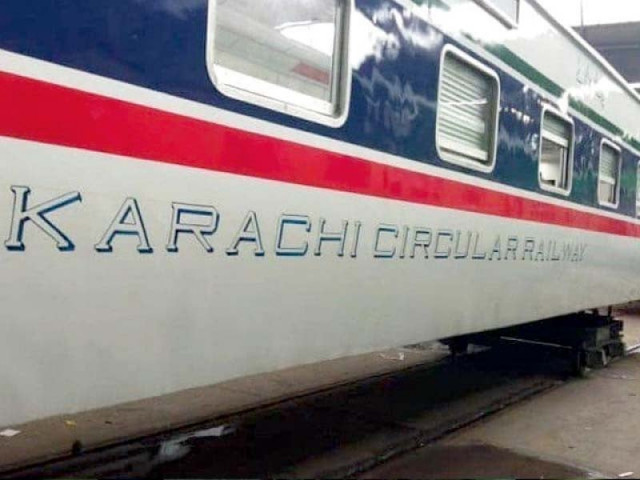Govt approves KCR financing structure
It comes amid warnings scheme carries high risks, is not financially viable

The government on Tuesday conditionally approved financing structure for the Karachi Circular Railway (KCR) project worth Rs201 billion amid warnings that the scheme carried very high risks and was not financially viable.
The Public-Private Partnership Authority (PPPA) board approved the financing model under which around Rs90 billion would be given in subsidies to complete the project in partnership with the private sector. Planning Minister Asad Umar chaired the PPPA board meeting.
However, the transaction adviser hired to prepare the financing model had recommended the provision of Rs513 billion in subsidies over a period of 30 years.
Total project cost is Rs201 billion and a minimum of 40% will be borne by the federal government through subsidies. Subsidies are exclusive of the cost on account of minimum guaranteed revenue of 85% of the projected passenger flow. The financing structure has not yet been vetted by the Debt Office of the Ministry of Finance and the PPPA board has approved the project with the condition of risk evaluation by the Debt Office.
A statement issued by the planning ministry stated that the PPPA board reviewed key statistics and components of the project proposal of KCR, which envisaged that the project should be built on a public-private partnership basis.
“The approved project proposal/ transaction structure entailed the project to be implemented on a BOT (build, operate and transfer) – user charge basis and the government will provide Viability Gap Funding (VGF) in order to improve financial viability and bankability of the project,” said the planning ministry.
Read Minister pushes for commercial use of idle railway stations
The project is yet to pass through the scrutiny of other government forums, including the Central Development Working Party (CDWP) and the Executive Committee of National Economic Council (Ecnec).
KCR was part of the Rs739 billion Karachi Transformation Plan that the federal government had promised to deliver in three years. But the risks highlighted by the PPPA before the board suggest that it will still take significant time before the beginning of construction work.
The board was informed that the KCR project was not financially viable and required substantial subsidies to make it viable and bankable for the private sector, according to officials who attended the meeting.
The project presents very high risks such as fiscal, default, interface and demand risks and needs a thorough analysis by the Risk Management Unit (RMU), Finance Division, according to the PPPA.
There were also cash flow-related risks from the 13 pieces of land that according to the approved model Pakistan Railways (PR) would give on lease for 99 years to raise money to pay Rs90 billion in subsidies, according to the board discussions.
The board was also informed that the Supreme Court had barred PR from giving land on lease beyond the period of five years.
“In case, PR cannot give the land on lease, the subsidies will be provided from the budget,” said an official who attended the board meeting.
The model of cash flow from giving land on lease was so risky that it may pose “high legal risks” and cash flow mismatch risks may make the project abortive, according to the board documents.
The board approved to ensure minimum guaranteed revenue of 85% of the projected passenger flows and in case passengers were below the threshold the government would bear half of the losses.
Considering the case of low demand for Lahore Orange Train that is only 50% of the estimates, the board advised that the federal government should talk to the Sindh government for direct administrative interventions to manage the competitors.
Read more KCR groundbreaking to take place in Sept
The estimated cost of a passenger ticket is minimum Rs35 and maximum Rs90 with annual increase of 6% in fares.
The project is expected to serve daily ridership of 457,000 passengers, which is expected to soar to 1 million per day by the end of 33-year concession period.
The planning ministry said that economic benefits of the project were phenomenal in terms of saving vehicle operating costs, environmental protection, accidents and time, contribution towards promoting gender equality, and spillover tax impact.
Umar, while highlighting the importance of the project, said “the project was an important part of the Karachi Transformation Plan and will play a pivotal role in providing an affordable and reliable public transport system to the Karachiites.”
Published in The Express Tribune, January 26th, 2022.
Like Business on Facebook, follow @TribuneBiz on Twitter to stay informed and join in the conversation.



















COMMENTS
Comments are moderated and generally will be posted if they are on-topic and not abusive.
For more information, please see our Comments FAQ